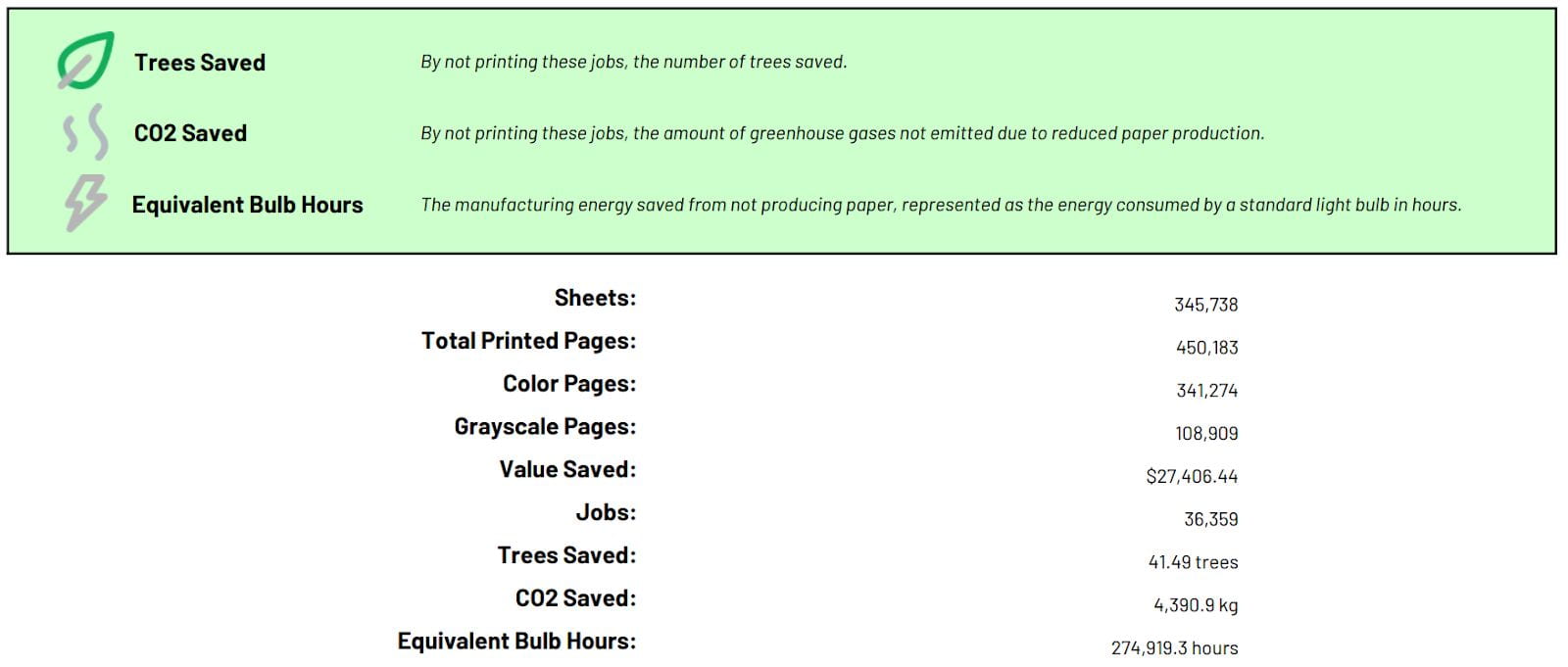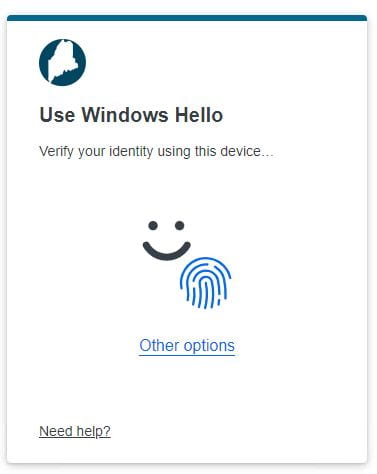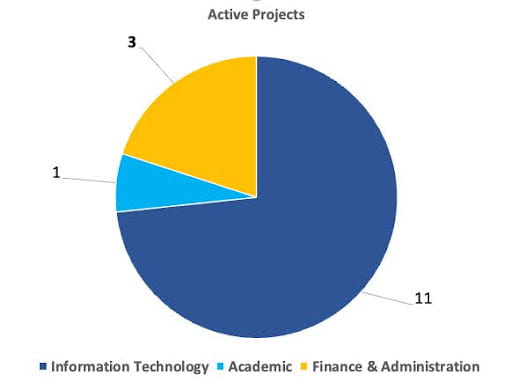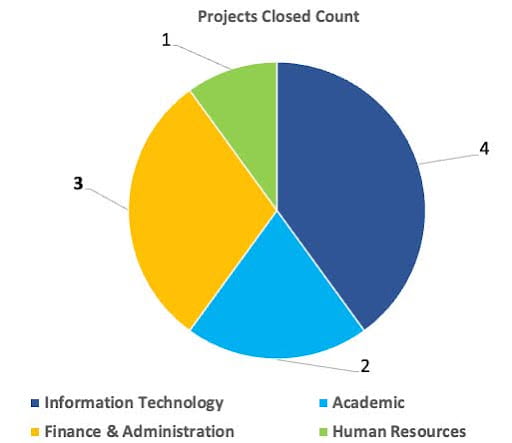
ADMISSIONS AND ADVANCEMENT CRM | MANAGED PRINT SERVICES | multi-factor authentication | 2023 IT Service management | technology REVIEW PROCESS | Summary of 2023 projects
ADMISSIONS AND ADVANCEMENT CRM
Admissions CRM
The University of Maine System Admissions offices are moving from their current CRM solution, TargetX, to a new shared Salesforce org. UMS has entered into an Agreement with CRM Ninjas for services relating to four (4) CRM Migrations to the Shared Org and Marketing Cloud migrations and activations in the Shared Org. This work includes several discovery sessions with UMS:IT technical resources and campus functional resources, data mapping, and data migration. Campuses participating in these migrations are UMA, UMM/UMaine Undergrad, UMaine Grad, and USM.
UMA completed its migration to the shared Org and went live on November 22, 2023. UMA’s Marketing Cloud account was enabled in the shared Org in mid-December. USM’s migration to the shared Org was completed on December 22, 2023, and go-live is scheduled for January 2024. USM’s Marketing Cloud is also expected to go live in the shared Org in January 2024. Discovery sessions for UMM/UMaine Undergrad will resume in January 2024.
Advancement CRM
The University of Maine System is implementing a comprehensive Constituent Engagement Management (CEM) solution created by UC Innovation. Their product, Ascend, runs on top of the Salesforce platform, is cloud-based, and offers state-of-the-art functionality including robust mobile presentation, automated logic-based communication tools, and a high degree of configuration/customization. Ascend will be used by the Advancement and Alumni Association areas of UMS, and the implementation will include the migration of data from its current Advance system to Ascend. By moving to an Advancement and Engagement solution that is more powerful and efficient, campuses should see a reduction in staff hours needed to complete various tasks, allowing more time to be spent cultivating and soliciting donors.
A core team of representatives from each campus has been participating in Sprints with UC Innovation team leads and UMS:IT staff and configuring Ascend to meet the needs of the UMaine and USM Foundations and campus Advancement offices. A 6-week Permissions Sprint will begin on January 2, 2024, followed by Integrations, and System and User Acceptance Testing. Training and final data conversion will occur over the Summer of 2024, and the anticipated go-live is currently scheduled for late August 2024.
MANAGED PRINT SERVICES
In 2023, 640 Xerox devices were deployed at UMS locations across the State of Maine. The Managed Print Services project has been completed and the service is operational.
The new Xerox Multifunction devices installed throughout the University of Maine System and new software provide a consistent user experience for printing, copying, scanning, and faxing.
Program Highlights
- 640 Xerox devices have replaced 732 Canon that were 7+ years old
- 92% of the Xerox devices are color capable (compared to 20% of the older devices)
- Printing and Copying Statistics
- 12,116 users have printed or copied
- 74.12% of jobs are grayscale
- 65% of jobs are duplexed
- 72% of jobs are based on Printing
- 7,237,642 Pages have been printed since January 1st, 2023
- 112,119 Pages were printed on August 28th, 2023

- Better for the environment!
- Find-Me printing reduces waste by not printing jobs that are not really needed. Our print management software tracks these important metrics.

- Print from nearly any device
To get more information, please visit Managed Print Services (Xerox) Implementation FAQ’s
multi-factor authentication
In 2023, UMS:IT actively promoted our multi-factor authentication (MFA) to better protect the intellectual property and personal information of faculty, staff, and the digital assets of our campuses. During 2023, MFA was generally made available to all regular UMS staff members. Additionally, MFA use was mandated for all employees in specific roles – including those with the ability to manage UMS account information or view financial aid information.
As of mid-December 2023, approximately 5,500 UMS account holders were using MFA – representing a 450% enrollment increase since December 2022. Approximately 1,200 employee accounts are currently enrolled, representing slightly less than 25% of eligible UMS faculty and staff. In parallel with these efforts, all UMaine students are eligible to enroll in MFA with those using Mobile Mainecard credentials required to participate. As a result, over 4,200 students have enrolled in MFA protection for their accounts.
During 2024, we expect increased MFA enrollment as additional data custodians leverage it to protect access to their services. The UMaine campus will focus on increasing MFA adoption for faculty, and others in instructional or research roles. UMS:IT continues to work with all campuses to determine how to expand MFA to additional student populations while also managing the associated costs.

Additional options for streamlining MFA are planned for 2024. Cisco Duo, our MFA vendor, introduced wider support for “Passkey” devices. This will allow devices supporting Windows Hello, FaceID, TouchID, and Android Biometric authentication to provide the strong authentication required directly on the supporting device, in many cases removing the need to keep a secondary device nearby.
2023 IT Service management
UMS:IT continues to improve, evolve, and standardize its IT Service Management (ITSM) practices such as Asset Management, Knowledge base, Service Catalog, Project Management, and Incident and Request Management. The TeamDynamix (TDX) suite of applications has provided a strong ITSM-based foundation for these efforts.
In March 2022, the IT Project Management Office (PMO) began using TeamDynamix as its primary project management and reporting tool. In the fall, the project request process, which utilizes the TDX ticketing application, was also moved to TDX. A pilot to onboard IT departments outside of the PMO onto the TDX Project Management application commenced in the fall and is being used to build out a process for onboarding other departments onto the application.
In July of 2023, UMS:IT moved to TDX ticketing for Incident & Request Management, from our legacy tool Jira Service Desk. UMS:IT then began migrating non-UMS:IT departments from Jira to TDX. One advantage of TDX Ticketing is its flexible customer intake form builder and workflow designer that improves tracking and fulfillment of specialized and complex user needs, e.g., policy and compliance vetting during the acquisition of technology products.
UMS:IT and UMS:HR are collaborating on HR’s adoption of the TDX Knowledge base for primarily internal procedural documentation. Other University areas, such as UM Student Financial Services, and most recently, USM Marketing, have inquired about adopting the TDX Knowledgebase tool.
Next steps on our ITSM maturity journey are the release of IT Problem and Change management processes, also supported by our TDX ITSM tool. Deploying these processes into TDX will help UMS:IT to better standardize and improve how we resolve root cause issues, roll out updates and changes to services, manage our technical debt, and more.
UMS:IT will also be collaborating with UMS:Payroll to assist Payroll with issue intake from employees. UMS:IT Help Desk agents will be able to intake and document issues for both areas using our TDX ticketing applications.
creation of the Technology Review Process
UMS:IT is tasked with helping university areas acquire and deploy technology in an effective manner and in compliance with University policies. Technologies employed by the university as part of a course, program, or other activity are subject to compliance with university policies. Examples of compliance requirements include protecting university information and ensuring equal opportunity for persons with disabilities.
Several years ago the UMS:IT Digital Accessibility team put into place a process to assist university areas with Accessibility policy compliance during technology acquisitions. The process helped university areas comply with the Board of Trustees Information and Communications Technology Accessibility Policy and our Information and Communications Technology Accessibility Administrative Practice Letter. The process worked well at identifying and helping plan for technologies that could be expected to present accessibility challenges. It also highlighted that there were other technology acquisition policies, APLs, or processes that were not systematically aligned and therefore created bottlenecks or delays for areas acquiring technology.
After collecting and reviewing all the different technology-related checks to ensure both compliance and good outcomes for areas acquiring technology, we expanded our initial accessibility review process into an overall “Technology Review” process.
We implemented the new Technology Review process using custom forms and workflows, to improve the collection of necessary information, and to simplify, track and ensure the timely review of requests, using our newly implemented Team Dynamix ticketing and workflow tools.
Oversight of the process was assigned to our recently formed Information Technology Business Operations (ITBO) team to help the university community (our customers) determine if a duplicate solution exists and identify potential cost savings. The ITBO team checks Marketplace for a duplicate contract or an already onboarded solution that is in place elsewhere within the university community and communicates its findings to the customer for transparency purposes.
The IT Technology Review process was launched on July 5, 2023, and included communications to campus communities and IT Knowledge base documentation at itsupport.maine.edu. The team meets weekly to continue to refine and improve the process.
The new process enhances the experience of technology reviews for university departments and staff who need to acquire technology by making the process much more holistic, transparent, and seamless. To learn more about the process, please visit the Information Technology Review Overview Knowledge Base article.
summary of 2023 projects
The Project Management Office (PMO) is currently partnering with other UMS:IT units and University departments on 15 active projects in the Academic, Finance & Administration, and Information Technology categories. During 2023, there were 10 projects completed by the PMO in the Academic, Finance & Administration, Human Resources, and Information Technology categories.


In addition to the project updates included in the State of IT Report, other system-wide initiatives in 2023 included:
2019 DLT RUS Grant
The $500,000 USDA Rural Utilities Service Distance Education and Telemedicine grant was awarded to UMS in 2019 to convert both its video conferencing and instructional television 20th-century distance education systems to a new 21st-century web conferencing solution. Approximately 62 sites, centers, and campuses across the State of Maine received upgraded equipment as a result of this award.
This project is in the close-out phase and the next steps include rewriting the scope of work due to location changes, completing the final report for the USDA, and scheduling walk-throughs at locations.
2020 DLT RUS Grant
UMS was awarded a $1 million grant under the Distance Learning and Telemedicine Grant program administered by the USDA. This initiative includes all 7 campuses of the University of Maine System as well as the University of Maine School of Law, the University of Maine Graduate and Professional Center, and Northern Light Health. It links hubs in Portland and Bangor with end users in rural Aroostook, Washington, Hancock, Piscataquis, Oxford, Somerset, and Franklin counties. The project includes 42 locations across the State of Maine, including 31 web conferencing and 16 telehealth service locations.
This project is currently about 70% complete. A scope change will be completed in January 2024 and submitted to the USDA for approval.
Accommodate
The Accommodate implementation took place during the period July 2022 through October 2023. This solution allows campuses to document and unify the accommodation request process for enrolled UMS students, streamline accommodation letter production by integrating common letter templates with consistent language, and allow for either paper or electronic delivery to students and faculty. The system also provides a common request and delivery system for note-taking requests, effectively manages disability exam proctoring, and provides students with greater independence in the process of scheduling and receiving accommodated testing.
Campus Accommodation offices will now be able to collect system-wide data to track the number of students with disabilities, including types of disabilities, accommodations provided, and other data including accommodation usage, student retention, and persistence.
RecTrac Implementation
Through an RFP process, RecTrac was selected as the management solution for Campus Recreation Centers. RecTrac will be implemented as a hosted cloud solution with a single database instance shared by all opt-in campuses. The implementation will be completed in phases by campus. The migration of UMaine, UMM, and UMF environments was completed during the week of December 4, 2023.
The contract for the payment solution, PayTrac, has been executed and implementation steps have begun. Due to the time required to vet PayTrac, the timeline for USM’s go-live has shifted to January 2024. The anticipated launch for UMA, UMFK, and UMPI with RecTrac and PayTrac is now projected for late January or possibly February 2024. The team is also confirming the timing for PayTrac implementations for UMaine, UMM, and UMF.
